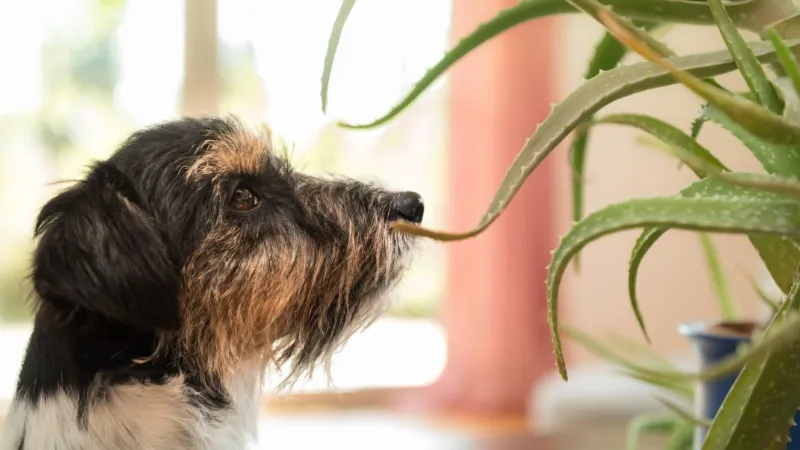Can other species benefit from using (or consuming) aloe in the same way that humans do in terms of health? Can your pooch enjoy better dental hygiene and a reduction in constipation, or is aloe poisonous to dogs? Let’s find out.
Dogs should not consume aloe vera because it is poisonous to them and will result in a variety of unpleasant symptoms. Intense vomiting, diarrhea, and low blood sugar are the main signs of aloe’s toxic effects on animals. The effects of aloe toxicity can be fatal if it is not treated right away.
If you want to learn more, keep reading.
Why Aloe is Toxic to Pets?
A sap that is produced by the aloe vera plant is very beneficial to people. For instance, if you’ve ever had a sunburn, applying aloe gel to the affected area probably helped. Supplements, flavored water, cosmetics, and other products all contain aloe extracts.
Aloe is one of the plants that is most poisonous to dogs, sadly, because it contains compounds called saponins. These substances can seriously damage a dog’s body, particularly their gastrointestinal system. Diarrhoea, vomiting, and fatigue may result from this. When propagating aloe vera plant, How much sun do aloe vera plants need?
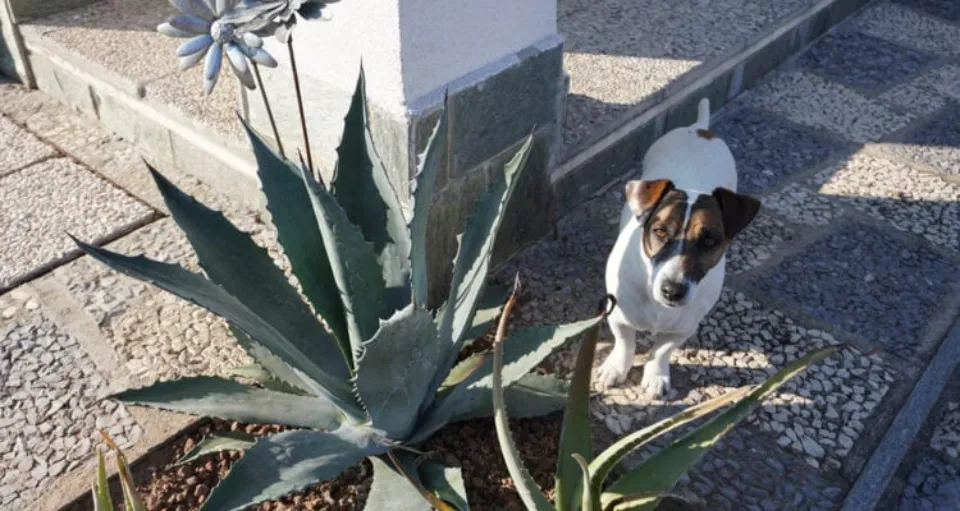
Aloe Vera Poisoning in Dogs
Though aloe veras have many benefits for hair, aloe veras are toxic to dogs. You should schedule a visit with your veterinarian right away to prevent any further toxicity if you are concerned that your devoted dog has snatched a piece from your aloe plant. In the section below, we look at the symptoms to watch out for as well as possible diagnoses and treatments for aloe vera toxicity from your veterinarian.
Symptoms
Excessive vomiting and diarrhea are the two most typical signs of aloe vera poisoning in dogs, but we’ll go over a few other symptoms that your veterinarian might inquire about.
- Abdominal pain and bloating
- Abnormal heart rate
- Anorexia
- Breathing difficulty
- Coma
- Dark urine
- Depression
- Diarrhea
- Dilated pupils
- Drooling
- Head-shaking
- High body temperature (hyperthermia)
- Lethargy
- Muscle twitches, spasms, or weakness
- Nausea
- Seizures
- Skin irritation (bumps, flaky skin, and hair loss)
- Tremors
- Incoordination
- Vomiting
- Weight loss
Make an appointment with your veterinarian as soon as you can if your dog exhibits any combination of these symptoms and you are aware that they have consumed aloe vera.
Causes
Aloe vera poisoning may result from ingesting a single large dose, frequent topical exposure, or both. This can occur from many situations, such as:
- Eating aloe vera plants
- Eating or being fed products with aloe vera gel, supplements or latex
- Constant exposure to aloe vera products in the environment
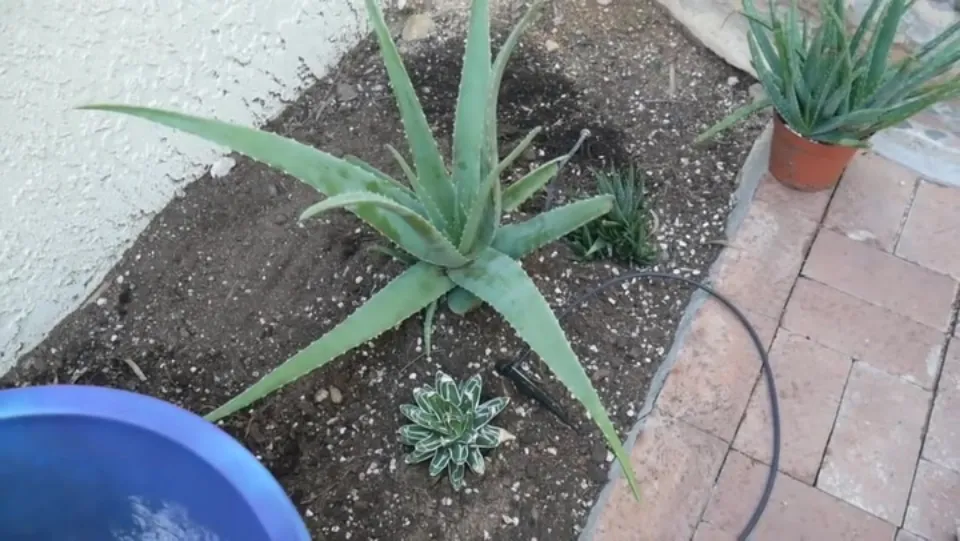
Diagnosis
You must schedule a visit with your veterinarian right away, even if your dog isn’t yet exhibiting symptoms of toxicity but you believe they’ve consumed aloe vera. It’s best to bring as much information about your dog’s medical history as you can, but getting there quickly is more crucial than anything else before the poisoning gets worse. To assist you in preparing for the appointment, we’ll look at a few of the ways your veterinarian might look for indications of aloe vera poisoning in your dog below.
- Vision and hearing exam
- Neurological exam
- Body temperature check
- Blood pressure
- Weight measurement
- Heart rate check
- Oxygen level check
- Respiration rate
- Complete blood count
- Blood gas measurement
- Urinalysis
- Fecal exam
- Radiographs, ultrasound or CT scan of your dog’s abdomen and chest
- Endoscopy
Treatment
- Induced vomiting
- Stomach pumping
- IV fluids and oxygen therapy
Types of Aloe Vera Poisoning in Dogs
- Acute aloe vera poisoning occurs when your dog consumes a large amount of aloe vera or a product containing aloe vera or latex
- Chronic aloe vera poisoning occurs when your dog is exposed to aloe vera plants or products from the plant in small amounts over a period of time (How to Care for Aloe Plants? )
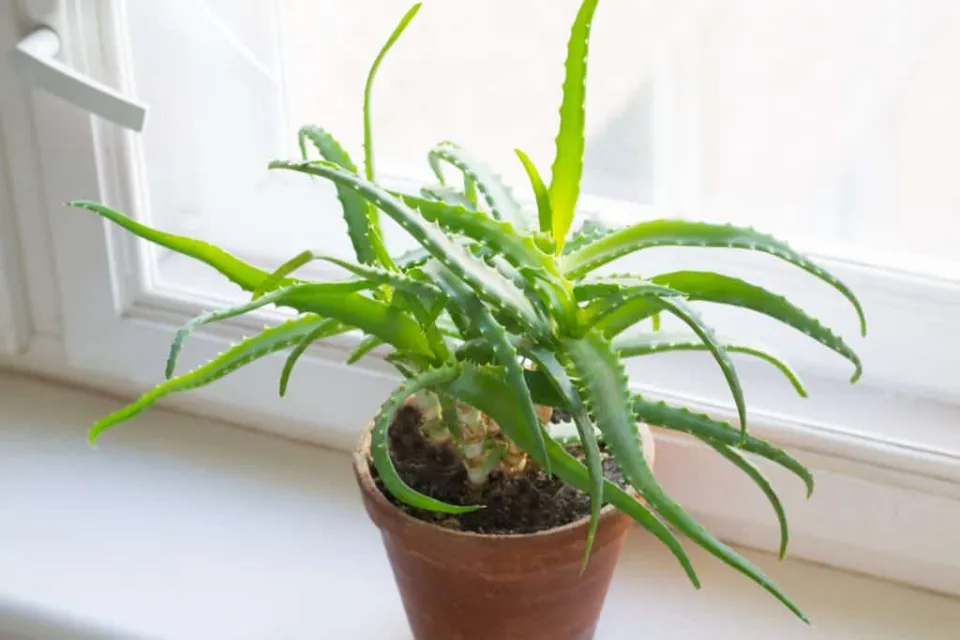
When to See the Vet
It’s common knowledge that dogs get into things they shouldn’t. Additionally, they enjoy eating human foods like macadamia nuts and chocolate that they shouldn’t. It’s likely that your dog enjoys exploring your garden when it comes to plants. Your indoor plants might interest them as well. Knowing common plants that could be harmful to your pets is crucial for this reason.
How can you tell if you need to take your dog to the nearest vet clinic if they eat a poisonous plant?
The best strategy is to err on the side of caution. Get your dog to the vet right away if you notice vomiting, a lot of drooling, or if it doesn’t want to eat.
If your dog exhibits symptoms of skin irritation, such as blisters or rashes, you should think about taking him to the veterinarian. Your pet might have accidentally brushed up against a plant and developed a skin reaction as a result.10
Consult your veterinarian or the ASPCA Animal Poison Control Center if you have any concerns about whether or not a plant could cause poisoning symptoms in your pet.
See more: Are Aloe Plants Toxic to Cats?
Non-Toxic Plants to Dogs
Even though there are many plants you’ll want to keep away from your pet, you don’t have to avoid all plants. All pets can safely interact with a wide variety of lovely plants that have amazing flowers. These include:
- Purple waffle plant
- Lilyturf
- Boston fern
- Areca palm
- Spider plant
- African violet
- Money plant
- Bamboo palm
Your veterinarian can advise you on additional plants that are safe for your pet and those that you should avoid. Prior to getting any plants for your house, it might be best to check with them.
Other Plants That Are Poisonous to Dogs
It turns out that there are heaps of plants that are poisonous to dogs yet common in a human household. Here are a few more to watch out for…
- Poinsettia
- Wisteria
- Tulips
- Sweet pea plants
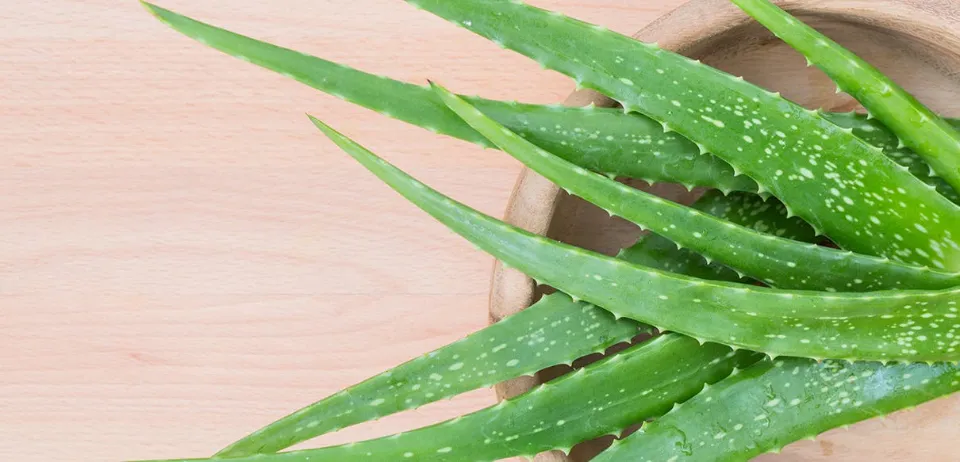
FAQs
What Happens If My Dog Eats An Aloe Plant?
A substance found in the plant called saponin is toxic to both children and animals. Ingestion of aloe vera can cause excessive vomiting, severe diarrhea, and low blood sugar. In fact, the toxicity may be so severe as to result in red blood cell breakdown, which can be fatal if not treated right away.
Can Dogs Lick Aloe Vera Plant?
Aloe Vera is not safe for dogs to ingest, but it is safe to put on their skin. When using aloe vera, it’s important to use caution. Never administer it to your dog or let your pet consume it. Be sure to keep a close eye on your dog’s behavior in case he accidentally licks or eats some aloe vera.
Are Spider Plants Toxic to Dogs?
Spider Plant. Chlorophytum comosum, commonly referred to as Spider Plants, are safe for dogs and probably one of the most widely recognized houseplants. Nephrolepis exaltata, a cozy and secure plant for animals, is an evergreen that can reach a height of 5 feet.
Is Snake Plant Toxic to Dogs?
Snake plants are extremely well-liked indoor plants due to their striking appearance and ease of maintenance. Unfortunately, they are also poisonous plants for dogs and can cause nausea, vomiting and diarrhea if consumed, says the ASPCA.
Summary: is Aloe Poisonous to Dogs?
A typical indoor plant is aloe vera, which belongs to the Aloaceae family. Anthraquinone glycosides, which are found in aloes, are purgatives (drugs that stimulate bowel movements). These glycosides are metabolized by intestinal bacteria after ingestion to create substances that boost the production of mucus and water in the colon. Vomiting and diarrhea may happen as a result. Depression, anorexia, changes in urine color, and tremors are a few other clinical signs that can occur after ingesting aloe vera.
If you have any questions, please leave a comment. My Prime Home tries to give you the best home improvement information. Don’t forget to share the post. Thank you for reading.
